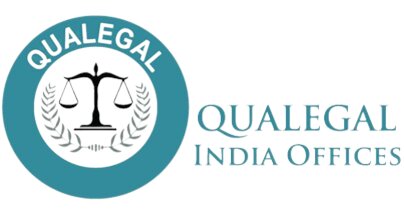Best International Lawyers in New Delhi
Share your needs with us, get contacted by law firms.
Free. Takes 2 min.
List of the best lawyers in New Delhi, India
About International Law in New Delhi, India
International law in New Delhi, India covers a broad spectrum of legal concerns relating to the international community. This includes trade agreements, human rights, international disputes, and transnational crimes. The capital city is home to numerous prestigious law schools, legal departments of multinational corporations, international NGOs as well as numerous legal firms specializing in International Law.
Why You May Need a Lawyer
Professional legal advice is vital when dealing with matters that cross international borders because these situations inherently involve complex interaction of diverse legal systems. Some common scenarios include conflicts over international business contracts, arbitration of international disputes, representation in international courts, issues relating to immigration or human rights violations, and drafting of international treaties and conventions. An experienced lawyer can provide appropriate legal guidance and representation to navigate these complexities.
Local Laws Overview
India follows a dualistic system in respect of international law, which means international law can only be enforced by the Indian Judiciary once it has been incorporated into domestic law. Key aspects include the Foreign Exchange Management Act (FEMA), the Passport (Entry into India) Act, and the Extradition Act. There are also rules and regulations with respect to foreign direct investments, customs laws, and prosecution of crimes that have international implications.
Frequently Asked Questions
What is the role of international law in Indian courts?
Indian courts apply international law only when it is in accordance with India's national laws. Where there is conflict, national laws prevail.
Can Indian law enforcement authorities prosecute crimes committed abroad?
Yes, if the crime committed abroad is also a crime in India, and if there is a lawful agreement between India and the country where the crime was committed.
What laws regulate international business transactions?
The Foreign Exchange Management Act (FEMA) is the main law regulating international business transactions.
How are international treaties incorporated into Indian law?
International treaties become a part of Indian law if and when they are ratified by the Parliament and incorporated into domestic law.
Do Indian courts exercise jurisdiction over foreign nationals?
Yes, Indian courts can exercise jurisdiction over foreign nationals under certain circumstances, such as when a crime is committed within Indian territory.
Additional Resources
The Ministry of External Affairs and the Ministry of Law and Justice are the principal governmental bodies dealing with matters related to international law. Additionally, the Bar Council of India provides legal education and conducts various programs and workshops on international law. Organizations like the Indian Society of International Law also offer useful resources.
Next Steps
If you need legal assistance in International Law in New Delhi, it is advisable to consult and hire a lawyer who specializes in this field. Finding the right lawyer can significantly impact the outcome of your case. You can seek recommendations, research online, or contact local law firms. Additionally, consider reaching out to the above-mentioned additional resources for further guidance.
Lawzana helps you find the best lawyers and law firms in New Delhi through a curated and pre-screened list of qualified legal professionals. Our platform offers rankings and detailed profiles of attorneys and law firms, allowing you to compare based on practice areas, including International, experience, and client feedback.
Each profile includes a description of the firm's areas of practice, client reviews, team members and partners, year of establishment, spoken languages, office locations, contact information, social media presence, and any published articles or resources. Most firms on our platform speak English and are experienced in both local and international legal matters.
Get a quote from top-rated law firms in New Delhi, India — quickly, securely, and without unnecessary hassle.
Disclaimer:
The information provided on this page is for general informational purposes only and does not constitute legal advice. While we strive to ensure the accuracy and relevance of the content, legal information may change over time, and interpretations of the law can vary. You should always consult with a qualified legal professional for advice specific to your situation.
We disclaim all liability for actions taken or not taken based on the content of this page. If you believe any information is incorrect or outdated, please contact us, and we will review and update it where appropriate.














